OZONE CONTROLLER - OEM-3
SPDT non-latching relay.NO & NC contacts are available. Relay commutates at set point. Contact rating: 5 A at 250 VAC
Zero Buttonallows re-zeroing of sensor output.
- Quantity:
- - +
Product Specification
OEM-3 OZONE CONTROLLER GENERAL:
The OEM-3 is a system to control ozone generators and alarms based on an adjustable ozone concentration set point. It is designed to work with user-replaceable sensor modules that are preconfigured for ozone detection ranges of 0-0.1 ppm, 0-1 ppm, and 0-10 ppm. The desired set point is specified when ordering. For example: a 1 ppm OEM-3 would be OEM-3-1, and the replacement ozone sensor module would be OEM-O3-1. The Eco Sensors’ SM-100 may be used to operate the sensor modules remotely at cable lengths up to 8 m (25 ft).
The OEM-3 incorporates the power supply, final sensor signal processing, set-point controls, analog output signals, and the output relay. The user-replaceable sensor module includes the ozone sensor and its associated electronics in a square, flat board with an edge connector. The sensor module is pre-calibrated in our lab so that the sensor module and OEM-3 work together as a calibrated system. If the sensor module is damaged or loses accuracy, it is simply replaced by another pre-calibrated module.
The controller design incorporates hysteresis and a time delay (set at 8 seconds) to eliminate chatter and other excessive interactions between the sensor and generator. The SPDT relay contacts will handle up to 5 A at 250 VAC. The OEM-3 should not be used outdoors or in the presence of NOx, nitric acid, acid gases, or halogen compound fumes (see Precautions section).
OEM-3 OZONE CONTROLLER Features:
- SPDT non-latching relay.NO & NC contacts are available. Relay commutates at set point. Contact rating: 5 A at 250 VAC
- Zero Buttonallows re-zeroing of sensor output.
- 0-2 V analog voltage outputwhich is a buffered version of the sensor module signal. 1 V represents the calibration point of the sensor module.
- 4-20mAcurrent outputwhich is proportional to the sensor module’s output. 12 mA represents the calibration point of the sensor module.
- Driver circuit for an audible alarm, including an acknowledge switch input to silence this alarm. The alarm will turn on again after the ozone level drops below the switch threshold and then rises again.
- SM-100 extension cables up to 8 mare available for remote mounting of the sensor module
OEM-3 OZONE CONTROLLER Performance Specifications:
|
Sensor Technology |
Electrochemical (EC) |
||
|
Max Setpoint |
0.1ppm |
1ppm |
10ppm |
|
Lower Detection Limit |
0.03 ppm |
0.03 |
0.3 ppm |
|
Resolution |
0.005 ppm |
0.01 |
0.1ppm |
|
Accuracy |
The greater of: ± 20% of reading or ± 0.03 ppm
|
The greater of: ± 10% of reading or ± 0.05 ppm |
The greater of: ± 10% of reading or ± 0.2 ppm |
|
Response Time |
< 30s TO 50% FS,<180s to 90% FS |
||
|
Turn-on, turn-off time delay |
8 seconds standard. Other times by request |
||
|
Relay ratings: |
SPDT non-latching. Contacts: 5 A at 250 VAC |
||
|
Data Update Rate |
1 second |
||
|
Temperature Compensation |
Yes [10-40C] |
||
|
Recommended Temperature Range |
50 °F to 86 °F (10 °C to 30 °C)
|
||
|
Recommended Humidity Range |
25 - 75% RH
|
||
|
Warm-up Time |
1 hour before testing; for best results allow 12 hours before continued use |
||
|
Supply Voltage |
12-24 VDC or VAC, 250 mA. |
||
|
Size of board |
83 X 83 mm (3.25" X 3.25"). Requires 28 mm (1.125") clearance from top surface of board and 6 mm (.250") clearance from bottom surface of the board. |
||
If you cannot find what you want, you can entrust OFweek to source for you. Just click:
Sourcing ServiceRecommended Products
-
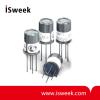
P-type Metal Oxide Carbon Monoxide (CO) Sensor
-

P-type Metal Oxide VOC Sensor
-
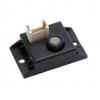
Pre-calibrated module for combustible gas
-
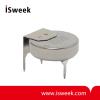
Compact CO Sensor
-
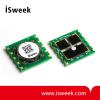
15x15 Indoor Air Quality Sensor 100 ppm C Package 110-802
-
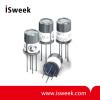
P-type Metal Oxide Carbon Monoxide (CO) Sensor
-
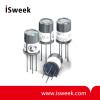
P-type Metal Oxide VOC Sensor
-
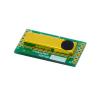
Carbon dioxide (CO2) sensor module
-
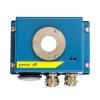
Gas sensor KSIM 1260 for detection of Sulfur Hexafluoride SF6
-
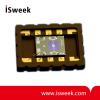
Thermal Conductivity Sensor for Leak or Pressure Detection
















